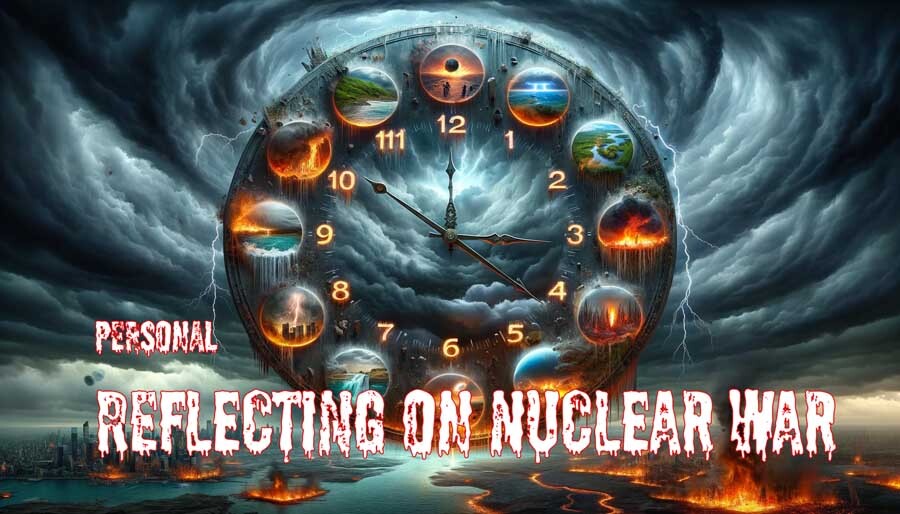DLNews JTFMax OP:
During a bright and sunny morning gathering, my friend Jackie and her husband Tom, who recently turned 70, brought me a split pea soup as a kind neighborly gift. The conversation that followed was both familiar and profound as we discussed the prospect of nuclear war - a heavy but vital topic. Is it inevitable, preventable, or, as some might controversially suggest, even necessary? As someone who was born ten years earlier in Germany in 1944, a time overshadowed by the tyranny of Adolf Hitler and when Oppenheimer was creating his nuclear bomb, I couldn't help but reflect on the gravity of the situation.
Historical Echoes and Present Dilemmas:
The conversation is anchored in history - when the world was on the brink of nuclear warfare, yet life went on with all its ordinary and extraordinary facets. People loved, celebrated, and struggled amidst the backdrop of immense human suffering. This paradox forms the crux of their discussion. With over 8 billion people on Earth and projections of 16 billion in a century, the question arises: How will we sustain such a population? The discussion acknowledges a world scarred by poverty, inequality, and the looming threat of totalitarian regimes.
The Ethical Quandary of Nuclear Warfare:
I pose a haunting question: Could a nuclear war, resulting in the loss of billions of lives, be a natural process or even a necessary evil in the face of overpopulation and global strife? This perspective is not advocated but presented as a provocative thought, inviting contemplation of the complex interplay between human conflict, environmental sustainability, and ethical boundaries.
The Cycle of History and Human Behavior:
Eighty years on, the group observes a seemingly cyclical nature of history - dictators rise, societal divisions deepen, and hatred festers across various lines of identity. In this context, the proliferation of nuclear weapons becomes a symptom of deeper societal ills - greed, power struggles, and the persistent human inclination towards conflict and domination.
The Role of Faith and Morality:
Amidst these reflections, the conversation touches upon the role of religion and morality. Does divine intervention play a role in human affairs, or are we at the mercy of our actions and decisions? The group grapples with these existential questions, pondering the fate of current and future generations.
The 2024 Doomsday Clock - A Symbol of Urgency:
As the Doomsday Clock ticks closer to midnight in 2024, it symbolizes the urgent need to address these global challenges. The memory that the United States once used nuclear weapons serves as a sobering reminder of the devastating potential of human actions.
Seeking Solutions in a Complex World:
The conversation does not end with despair but with a call for introspection and action. How can we break this 'Groundhog Day' cycle of repeated history? The group recognizes the need for collective action, global cooperation, and a rekindling of compassion and understanding to navigate these tumultuous times. The article concludes by inviting readers to join this vital conversation, reflecting on our shared history, present challenges, and the future we wish to create for the coming generations.

![]() \
\
Share this page with your family and friends.